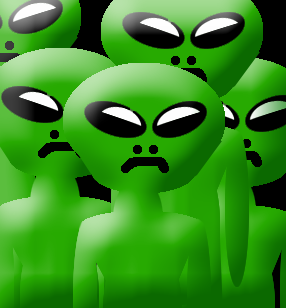 |
Nokia N8
(Image copyright Nokia, 2010) |
The world is changing. Yesterday's sure bets seem less of a winner these days. Microsoft was once the only player in the OS market that mattered. These days, the alternatives are getting more viable by the minute and Windows is far from the only valid choice when choosing an operating system for your laptop, desktop, phone or tablet.
The same goes for the mobile phone market. Nokia used to be the safe go to manufacturer only a couple of years ago. Now, with smart phones taking over the mobile phone market, they struggle.
There is a parallel here: if market share meant anything in determining a company's future, both
Microsoft and
Nokia would be as safe as houses. But as both companies know, market share is in fact as safe as houses proved to be during the sub-prime disaster. It turns out that customers are fickle beasts. Brand loyalty only goes so far. If a manufacturer does not provide the right feature set and - more importantly - the right user experience, the public looks elsewhere. And Nokia has not offered the right user experience for some time. The Symbian operating system has grown old and stale compared to the iPhone and Android alternatives. It is clunky, looks unattractive and involves to many button pushes or screen taps to get you where you want to be. It was good in its day but not anymore.
In a
rousing speech yesterday, Nokia's top marketing man, Niklas Savander
, tried to convince a developer-audience that Nokia means to revitalise the brand. New smart phones, running new OS's will make them relevant again in the smart phone market. He even took a leaf out of Steve Jobs' book when he jibed, "One more thing, they perform, day in day out, no matter how you hold them." This of course is when Murphy pokes his head around the corner and makes all Nokia phones go "Oomph!" and lets those reception bars go the way of the dodo. Better not to joke at your competitors expense!
I am sceptical on Nokia remaining a relevant smart phone manufacturer. Their market share in the US is negligible and although they sell huge numbers of smart phones worldwide - some 260,000 a day according to Nokia themselves - I doubt whether the new N8 flagship phone with the 'new' Symbian^3 operating system is going to do it. With smart phones leaving the high end market and entering the 'every one's phone' market, the OS is going to become more important than ever.
You see, reading
some reviews about the N8 some people may like this phone. It has some niggles but also some nice features. But that is not going to cut it. To stay relevant in the smart phone market Nokia does not need a phone that is just all right. It needs a phone that blows both the iPhone 4 and the Android contenders out of the water and the N8 running a Symbian OS is not going to do that. It is going to be an also ran. And an also ran is not enough to sustain a huge company like Nokia.
What would save Nokia? Maybe a 4" smart phone flagship running Android with the build quality of a tank and a camera that rivals a SLR would. They need to bring out a phone that promises its user uninterrupted use and loyalty, even when the competition has moved on during the contract period. In other words, they need the modern equivalent of my old and venerable N82, which I still use every day!







